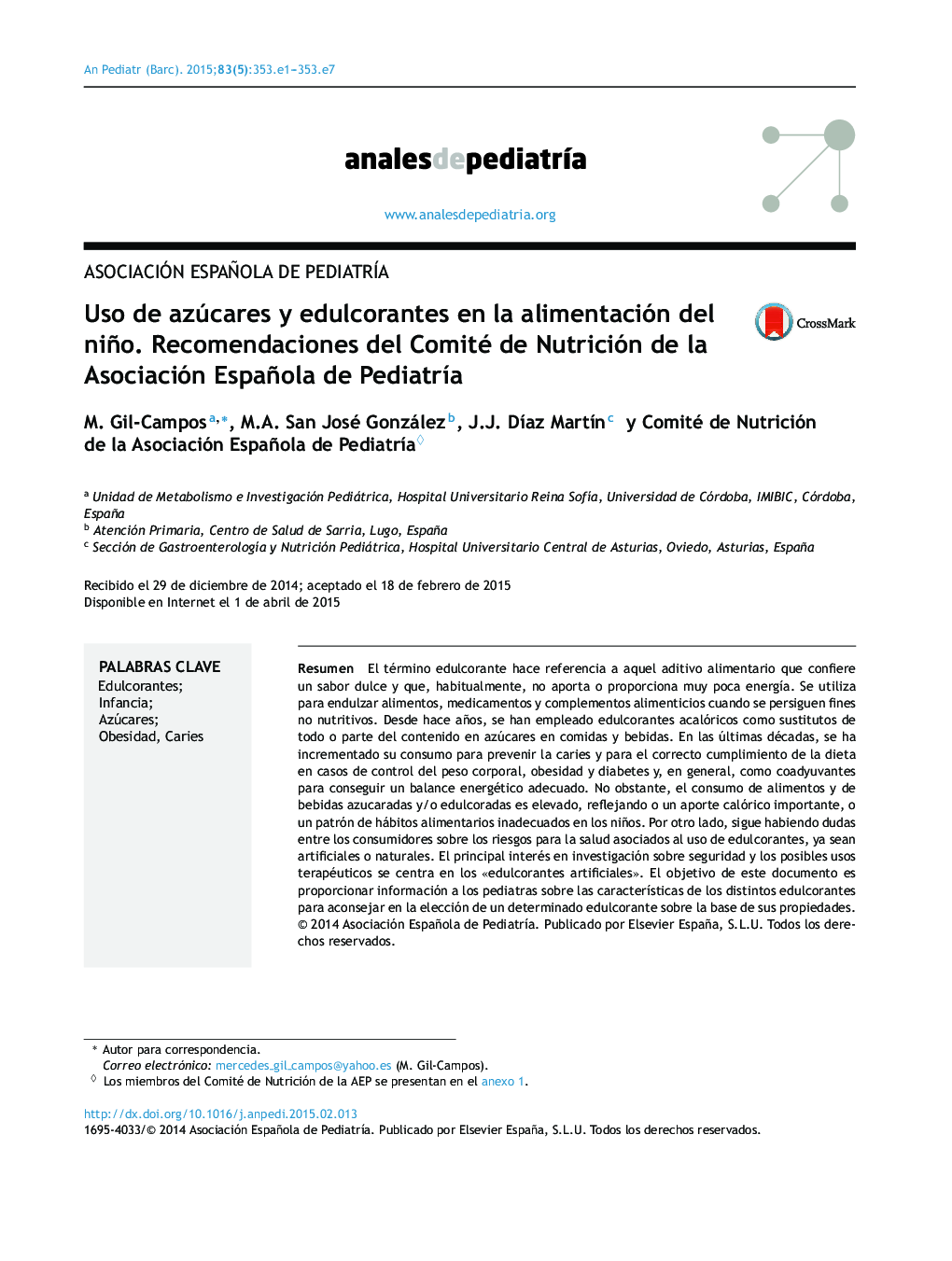| Article ID | Journal | Published Year | Pages | File Type |
|---|---|---|---|---|
| 4140956 | Anales de Pediatría | 2015 | 7 Pages |
Abstract
The term «sweetener» refers to a food additive that imparts a sweet flavour and usually provides no or very low energy. It is used to sweeten foods, medicines and food supplements with no nutritional purposes. For years, no-calorie sweeteners have been used as substitutes for all or part of the sugar content in foods and beverages. In recent decades its consumption has risen to prevent tooth decay, or as an aid in weight control, obesity and diabetes and, in general, to achieve an optimal energy balance. However, consumption of sugary or sweetened food and soft drinks is high, making this situation of special interest in calorie intake and in the poor behavioural pattern of eating habits in children. In addition, questions remain among consumers about the risks to health associated with their use, whether they are artificial or natural. The «artificial sweeteners» are the group of greatest interest in research in order to demonstrate their safety and to provide firm data on their possible therapeutic effects. The aim of the present document is to increase information for paediatricians on the characteristics of different sweeteners, and to advise on the choice of sweeteners, based on their properties.
Related Topics
Health Sciences
Medicine and Dentistry
Perinatology, Pediatrics and Child Health
Authors
M. Gil-Campos, M.A. San José González, J.J. DÃaz MartÃn, Comité de Nutrición de la Asociación Española de PediatrÃa Comité de Nutrición de la Asociación Española de PediatrÃa,
